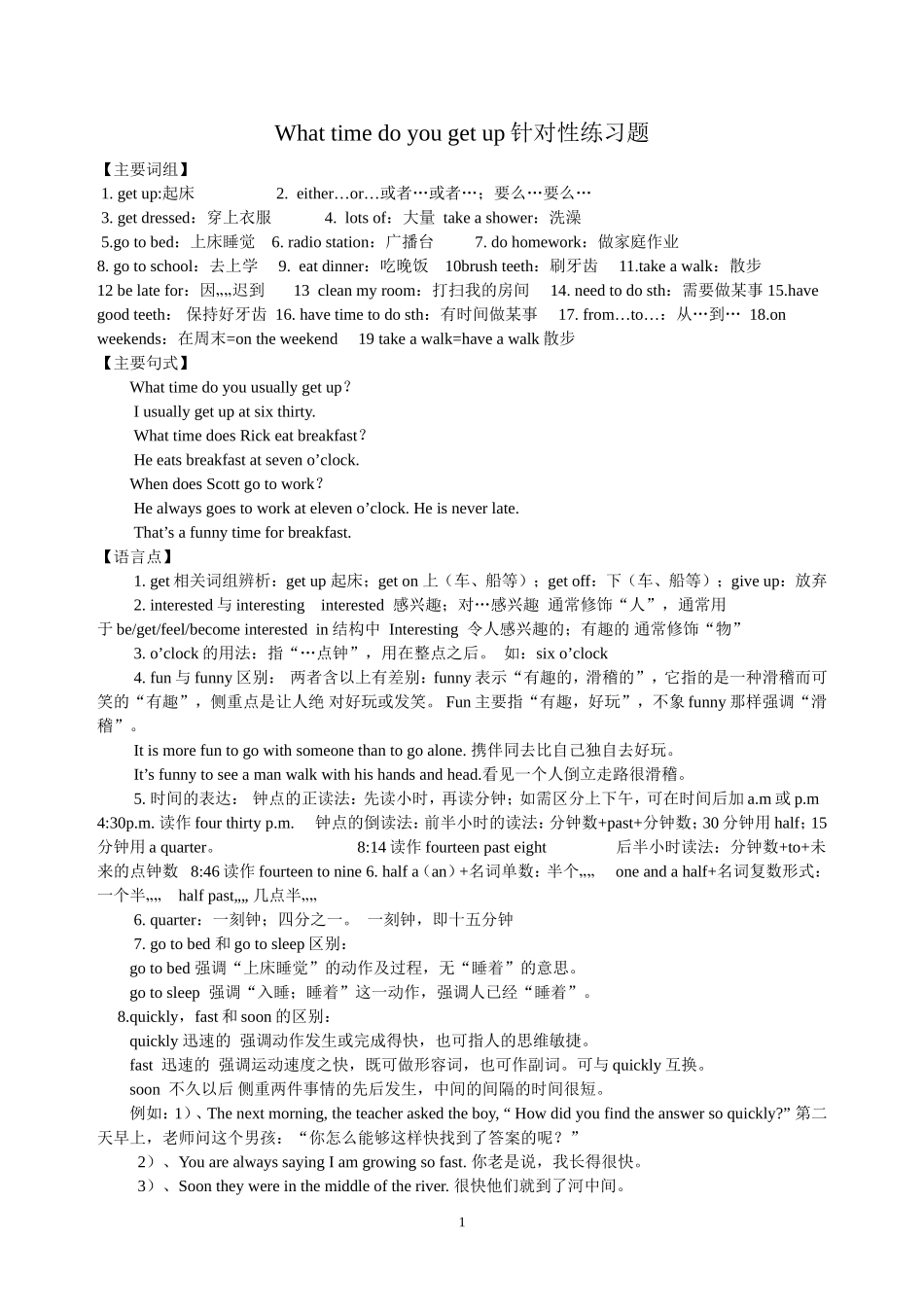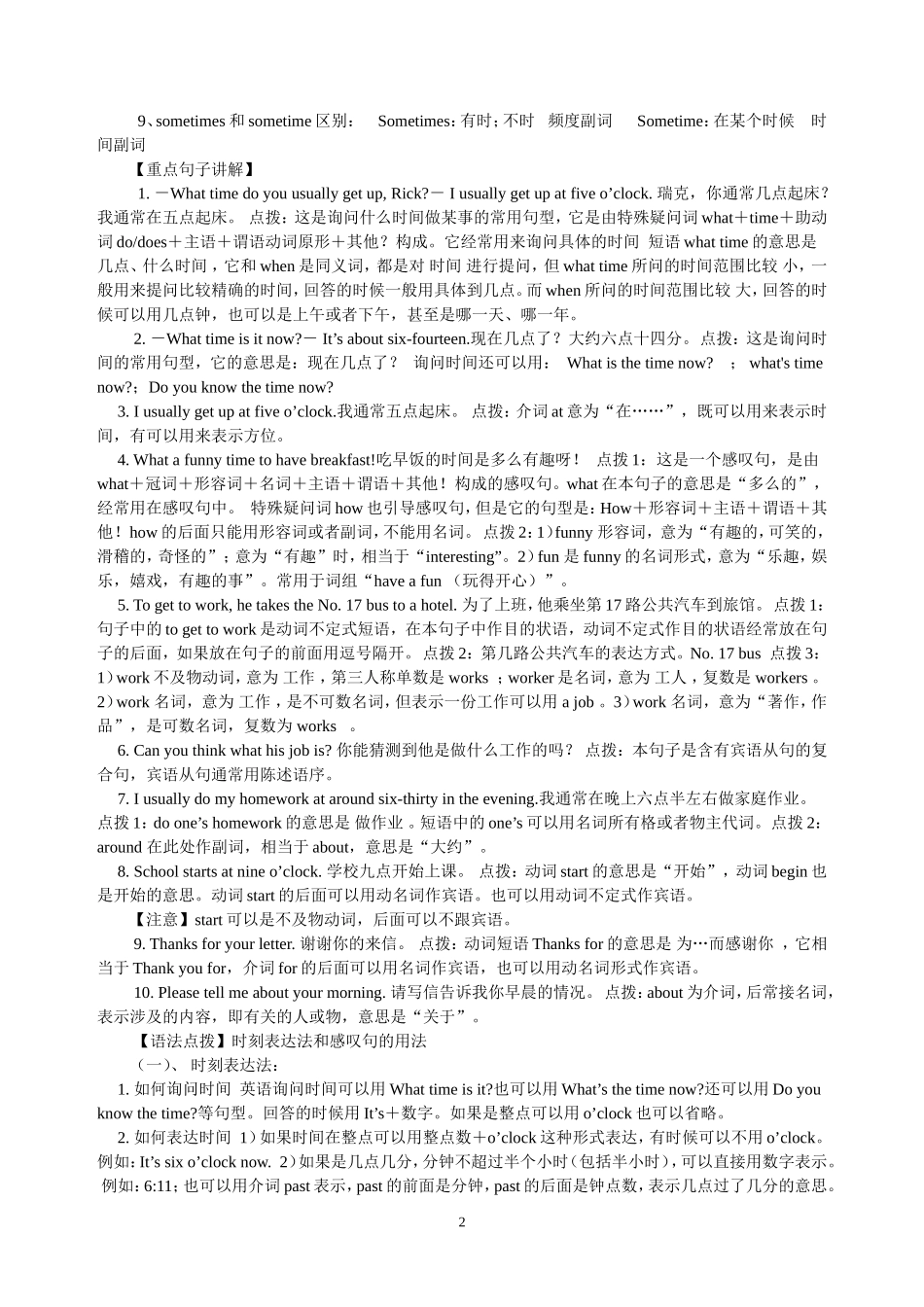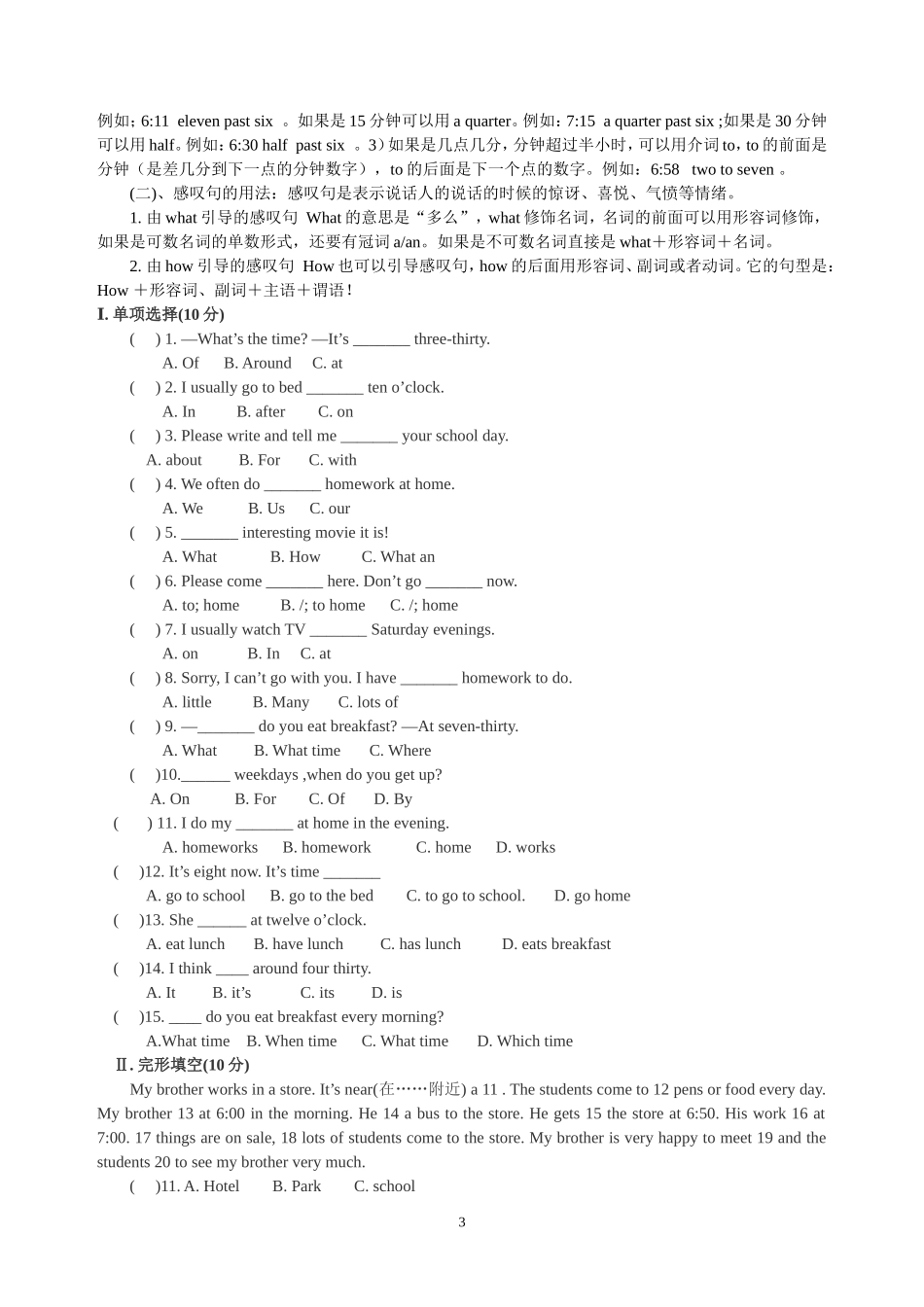1What time do you get up 针对性练习题【主要词组】 1. get up:起床 2. either…or…或者…或者…;要么…要么… 3. get dressed:穿上衣服 4. lots of:大量 take a shower:洗澡 5.go to bed:上床睡觉 6. radio station:广播台 7. do homework:做家庭作业8. go to school:去上学 9. eat dinner:吃晚饭 10brush teeth:刷牙齿 11.take a walk:散步 12 be late for:因„„迟到 13 clean my room:打扫我的房间 14. need to do sth:需要做某事 15.have good teeth: 保持好牙齿 16. have time to do sth:有时间做某事 17. from…to…:从…到… 18.on weekends:在周末=on the weekend 19 take a walk=have a walk 散步 【主要句式】 What time do you usually get up? I usually get up at six thirty. What time does Rick eat breakfast? He eats breakfast at seven o’clock. When does Scott go to work? He always goes to work at eleven o’clock. He is never late. That’s a funny time for breakfast. 【语言点】 1. get 相关词组辨析:get up 起床;get on 上(车、船等);get off:下(车、船等);give up:放弃 2. interested 与 interesting interested 感兴趣;对…感兴趣 通常修饰“人”,通常用于 be/get/feel/become interested in 结构中 Interesting 令人感兴趣的;有趣的 通常修饰“物” 3. o’clock 的用法:指“…点钟”,用在整点之后。 如:six o’clock 4. fun 与 funny 区别: 两者含以上有差别:funny 表示“有趣的,滑稽的”,它指的是一种滑稽而可笑的“有趣”,侧重点是让人绝 对好玩或发笑。 Fun 主要指“有趣,好玩”,不象 funny 那样强调“滑稽”。 It is more fun to go with someone than to go alone. 携伴同去比自己独自去好玩。 It’s funny to see a man walk with his hands and head.看见一个人倒立走路很滑稽。 5. 时间的表达: 钟点的正读法:先读小时,再读分钟;如需区分上下午,可在时间后加 a.m 或 p.m 4:30p.m. 读作 four thirty p.m. 钟点的倒读法:前半小时的读法:分钟数+past+分钟数;30 分钟用 half;15分钟用 a quarter。 8:14 读作 fourteen...


